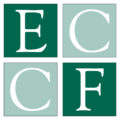
Everyone has opinions: How to make sure yours are grounded
Some of the most valuable work that I do with individuals and teams is helping them understand the difference between assessments and assertions… or put another way, the difference between opinions (or assumptions) and facts.
Of course, you know the difference. If it is 85 degrees, you are sweating, and you say “It’s hot.” That’s a fact! Or is it?
Not so fast. Actually, that would be an assessment, or an opinion. If you said “It is 85 degrees here” that would be an assertion or a fact. (we would not know if it were a true assertion unless we had a thermometer to check it, but the statement itself would be an assertion.)
But the statement “It’s hot” is simply an assessment, or your opinion.
Once, when I did some work on these concepts with a team, the CEO was adamant that the statement “Fire is hot” was a fact, even though the rest of team insisted that it was an assertion. To settle the matter, I asked the CEO if a beach bonfire was hot. He assured me that it was. “Not to a glass-blower” I replied.
So does this mean that assessments are bad? Should we avoid assessments at all times and stick strictly to assertions?
No, we need to make assessments to live. Every day we make assessments about the suitability of certain friends or experiences for our kids, whether we will like a particular novel enough to invest our time in reading all 500 pages of it, and whether the new guy at work is catching on sufficiently.
They key is to ground your assessments. Here’s how you can make sure your opinions or assessments are grounded.
- What is the assessment based on? Is there any evidence? What assertions (facts) actually support the assessment?
- Ask yourself “In what domain does this assessment apply? If I make an assessment that Gretchen is incompetent, is the assessment true in ALL domains? Are there domains in which Gretchen may actually be quite competent? Is she an incompetent accountant, meeting facilitator, and friend? Or is she simply not competent at running meetings?
- What evidence can you find that your assessment is incorrect? We tend to get a lot of practice collecting evidence to prove that we are right. But reversing the process to go out of our way to prove ourselves wrong, is counter-intuitive but highly effective. Actively trying to prove ourselves WRONG is one of the best ways to ground our assessments.
We all have opinions and that’s not bad. But making sure that yours are grounded will serve you in decision-making and communication.


